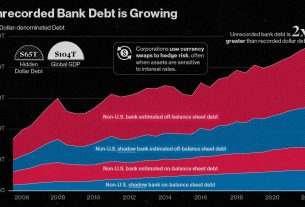Imagine a company you recently applied to work at used an artificial intelligence program to analyze your application to help expedite the review process. Does that creep you out? Well, you’re not alone.
Consumer Reports recently released a national survey finding that Americans are uncomfortable with use of artificial intelligence (AI) and algorithmic decision-making in their day to day lives. The survey of 2,022 U.S. adults was administered by NORC at the University of Chicago and examined public attitudes on a variety of issues. Consumer Reports found:
- Nearly three-quarters of respondents (72%) said they would be “uncomfortable”— including nearly half (45%) who said they would be “very uncomfortable”—with a job interview process that allowed AI to screen their interview by grading their responses and in some cases facial movements.
- About two-thirds said they would be “uncomfortable”— including about four in ten (39%) who said they would be “very uncomfortable”— allowing banks to use such programs to determine if they were qualified for a loan or allowing landlords to use such programs to screen them as a potential tenant.
- More than half said they would be “uncomfortable”— including about a third who said they would be “very uncomfortable”— with video surveillance systems using facial recognition to identity them, and with hospital systems using AI or algorithms to help with diagnosis and treatment planning.
The survey findings indicate that people are feeling disempowered by lost control over their digital footprint, and by corporations and government agencies adopting AI technology to make life-altering decisions about them. Yet states are moving at breakneck speed to implement AI “solutions” without first creating meaningful guidelines to address these reasonable concerns. In California, Governor Newsom issued an executive order to address government use of AI, and recently granted five vendors approval to test and AI for a myriad of state agencies. The administration hopes to apply AI to such topics as health-care facility inspections, assisting residents who are not fluent in English, and customer service.
The vast majority of Consumer Reports’ respondents (83%) said they would want to know what information was used to instruct AI or a computer algorithm to make a decision about them. Another super-majority (91%) said they would want to have a way to correct the data where a computer algorithm was used.
As states explore how to best protect consumers as corporations and government agencies deploy algorithmic decision-making, EFF urges strict standards of transparency and accountability. Laws should have a “privacy first” approach that ensures people have a say in how their private data is used. At a minimum, people should have a right to access what data is being used to make decisions about them and have the opportunity to correct it. Likewise, agencies and businesses using automated decision-making should offer an appeal process. Governments should ensure that consumers have protections from discrimination in algorithmic decision-making by both corporations and the public sector. Another priority should be a complete ban on many government uses of automated decision-making, including predictive policing.
From deciding who gets housing or the best mortgages, who gets an interview or a job, or who law enforcement or ICE investigates, people are uncomfortable with algorithmic decision-making that will affect their freedoms. Now is the time for strong legal protections.



